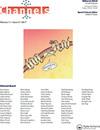交流电源监控系统
IF 3.2
3区 生物学
Q2 BIOCHEMISTRY & MOLECULAR BIOLOGY
引用次数: 1
摘要
在高能源成本的激励下,个人和组织都希望减少能源消耗。然而,消费者通常收到的唯一反馈是列出他们总用电量(以千瓦时为单位)的月度账单。一些公司已经开始开发系统,允许家庭和组织监控他们的单个电路的能源使用情况。可用的系统价格昂贵,因此CU工程高级设计团队设计、制造并测试了一个系统,供Cedarville大学使用。交流电源监控系统能够测量断路器面板中每个单独电路的能耗,存储数据,然后向用户提供关于能耗行为的可视化反馈。该基本系统为未来的高级设计团队提供了概念验证。在更多的测试完成后,该产品将需要其他高级设计团队进一步开发。最终,这种能源监测系统可以扩展到包括更大的负荷,如暖通空调系统和制冷装置。未来的项目还可以为用户提供改变和改善能源使用行为的建议。单个电路上设备的故障预测也可能源于这个初始项目。对于这个项目,已经清楚地表明,这个概念是可行的,可扩展的,并且具有成本效益。本文章由计算机程序翻译,如有差异,请以英文原文为准。
AC Power Monitoring System
Motivated by high energy costs, people and organizations want to cut back on their energy consumption. However, the only feedback consumers typically receive is a monthly bill listing their total electricity usage (in kWh). Some companies have begun developing systems that allow households and organizations to monitor their energy usage for individual circuits. Available systems are expensive so a CU engineering senior design team has designed, fabricated, and tested a system for use at Cedarville University. The AC power monitoring system has the ability to measure energy consumption for each individual circuit in the breaker panel, store the data, and then provide the user with visual feedback on energy usage behavior. The basic system provides the proof of concept for future senior design teams. After more testing is completed, further development of this product will be needed by other senior design teams. Eventually, this energy monitoring system could be expanded to include larger loads such as HVAC systems and refrigeration units. It is also envisioned that future projects might be able to provide the user with suggestions for changing and improving energy usage behavior. Failure prediction of equipment on individual circuits could also stem from this initial project. For this project, it has been clearly shown that the concept is feasible, expandable, and cost-effective.
求助全文
通过发布文献求助,成功后即可免费获取论文全文。
去求助
来源期刊

Channels
生物-生化与分子生物学
CiteScore
5.90
自引率
0.00%
发文量
21
审稿时长
6-12 weeks
期刊介绍:
Channels is an open access journal for all aspects of ion channel research. The journal publishes high quality papers that shed new light on ion channel and ion transporter/exchanger function, structure, biophysics, pharmacology, and regulation in health and disease.
Channels welcomes interdisciplinary approaches that address ion channel physiology in areas such as neuroscience, cardiovascular sciences, cancer research, endocrinology, and gastroenterology. Our aim is to foster communication among the ion channel and transporter communities and facilitate the advancement of the field.
 求助内容:
求助内容: 应助结果提醒方式:
应助结果提醒方式:


